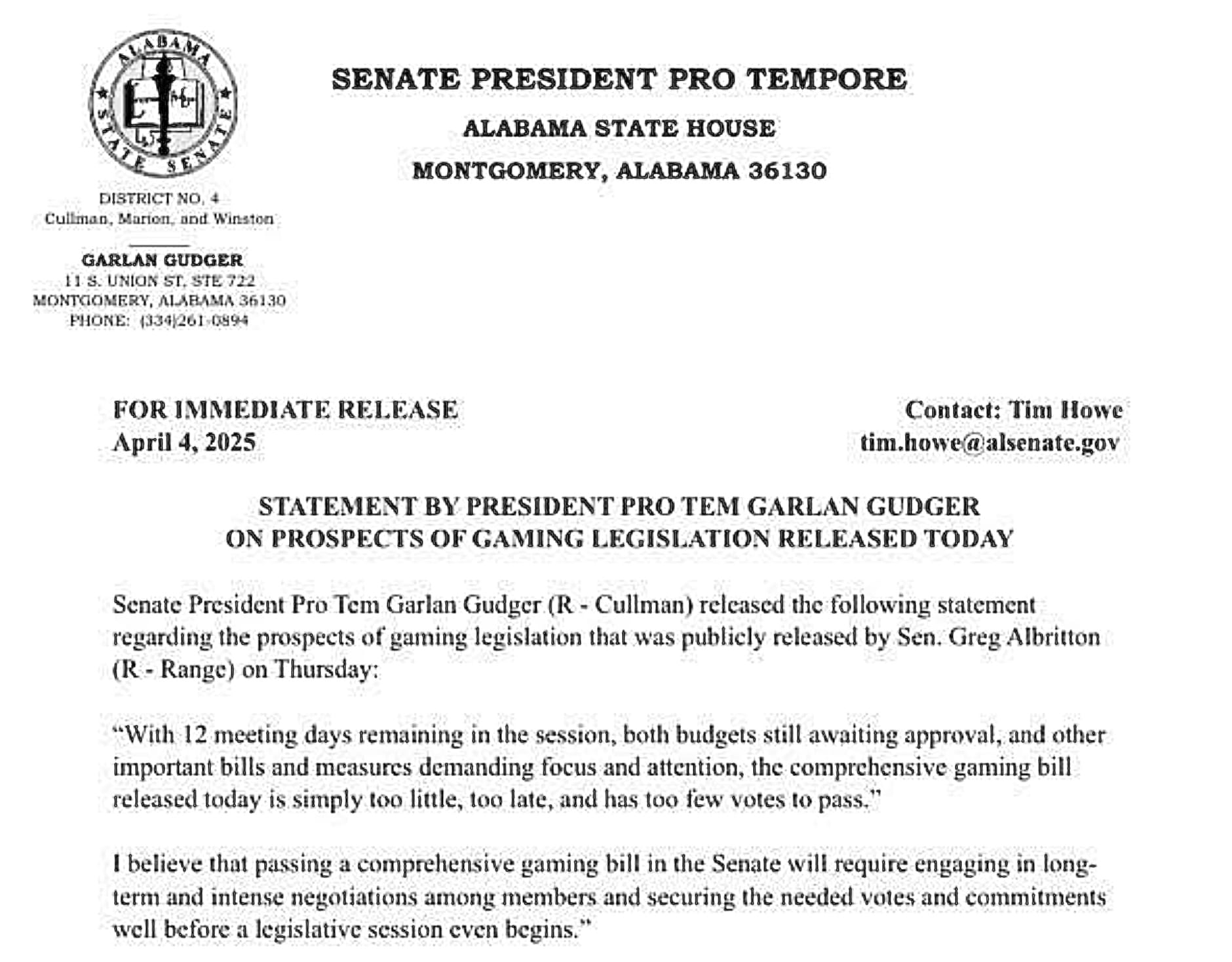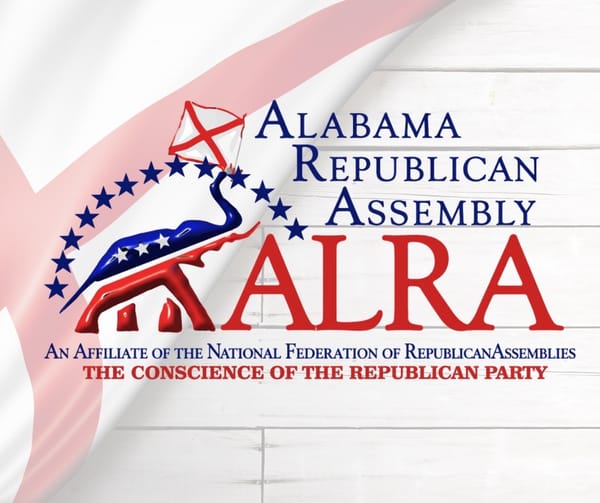State Senator Albritton: Gambling Has “Been Dead for 25 Years. Why Not Another 20?”
Feels there will be more local bills while State is sidelined

State Senator Greg Albritton will likely not be introducing a comprehensive gambling bill in this Legislative session, and perhaps not ever.
Speaking on Monday’s “The Dale Jackson Show” on WVNN, Albritton said that “I think we’re just right back to where we were, or are” with regards to gambling in the State.
Albritton had been working on a comprehensive gambling bill to be introduced in the second half of the session. However, before this bill was introduced, State Senate President Pro-Tem Garlan Gudger released a statement last Thursday, April 4th saying any gambling bill was “simply too little, too late,” and had “too few votes to pass.”
Gudger mentioned that both General Fund and Special Education Trust Fund budgets have yet to be approved, and “passing a comprehensive gaming bill in the Senate will require engaging in long-term and intense negotiations among members” to secure the votes and commitments before a legislative session even begins.

Albritton told Jackson that “this will probably be dealt with, with local legislation, like we’ve done it in the past.” As things stand now, “it could happen in any county. There’s no restriction on that.”
“We’ve got, what is it? Eighteen or nineteen local CA’s (constitutional amendments) now on the books that authorize some type or form of gambling. I just see that this will be the choice, or the only means open to getting some type of gambling control or gambling activity,” Albritton said.
With regards to the future of gambling in Alabama, Albritton conceded that his comprehensive approach appears to be “dead and gone” but in terms of the gambling industry, “it’s there, it’s growing. You don’t even have to cross state lines to buy a lottery ticket. You can do that by app, sitting in your front yard. You can do sports gaming now, at any time and any place, on your phone. Gaming is present and growing in Alabama, and will be, forever and ever, amen.”
Jackson then discussed with Albritton about using a virtual private network (VPN), which can easily be set up, to allow access to geographically-restricted sites. VPNs allow devices to connect to the web through a distant server, which makes sites think the devices are logging on from an allowed location. Albritton then asked if Jackson was telling people how to illegally gamble in Alabama, “not that it matters at this point.” Jackson then pointed out that it was already occurring, to which Albritton agreed.
“My argument has been, it’s happening now,” Albritton said. “We’re suffering the ills of it now. It is occurring now, and to my mind, it’s the State’s moral obligation to control it.”
Albritton went on to say that he was not in favor of the current local legislation model because it creates a “discombobulation” of the law, making enforcement both time consuming and hugely difficult. “Until we get rid of not only the eighteen or nineteen CAs, repeal those and prevent those from coming in, that’s what we’re going to have.”
Albritton’s bill would have likely included a 24% tax on net gaming revenues, established a $2,500 privilege tax for every electronic gaming machine, created an Alabama Gambling Commission with its own Gaming Enforcement Division, required the State to enter a compact with the Poarch Creek Indians, and allowed tradition raffles or bingo for charity with a license fee not to exceed $25.
Albritton discussed a local gaming bill that might pass this session, saying, “We’ve got a local bill floating now that’s coming up, and those that we’re voting no on mine are going to walk on that because it’s a local bill.
“That’s not the new idea. That’s the one that we have. That’s the one we’ve been successful at,” Albritton concluded.




